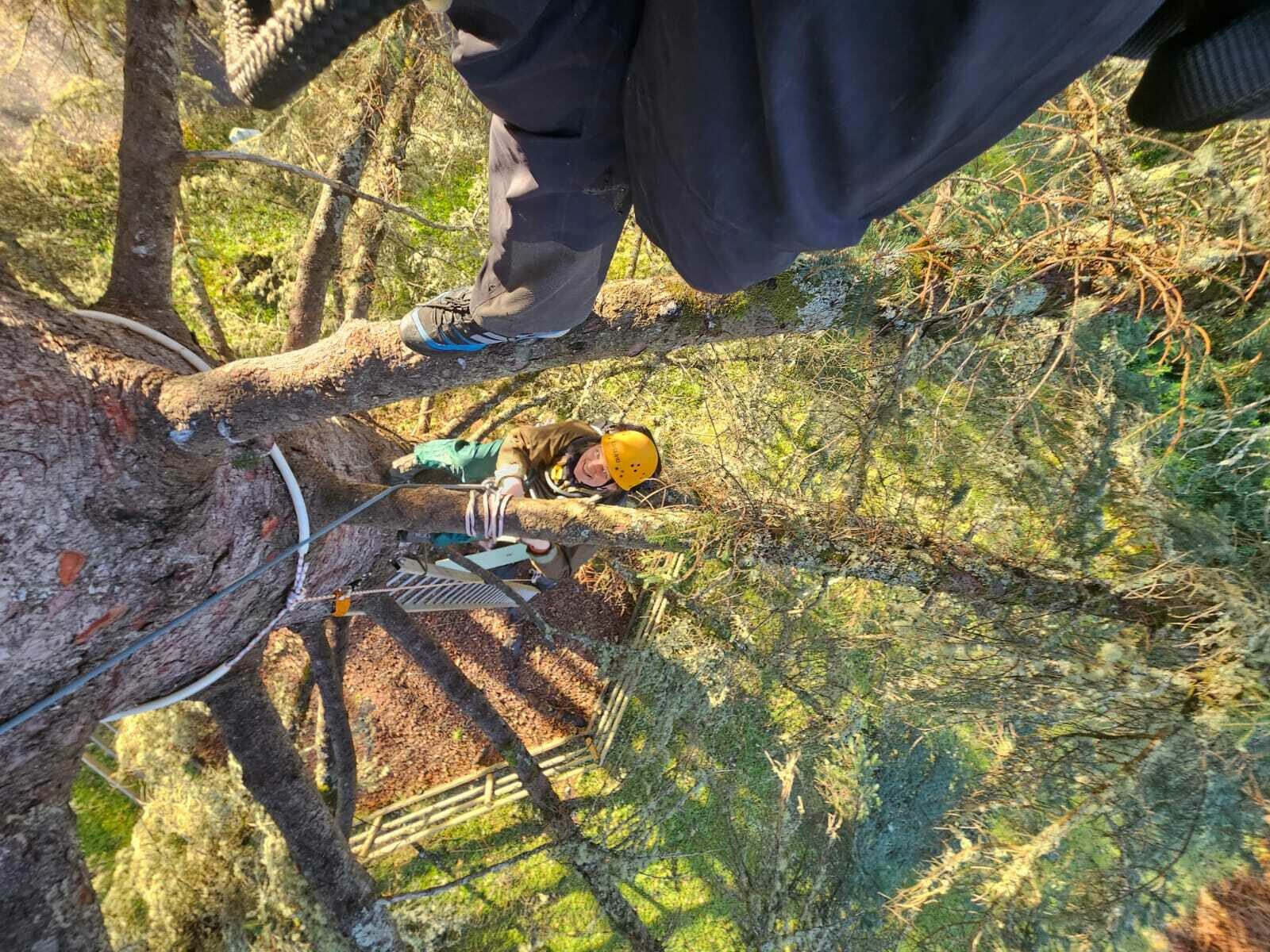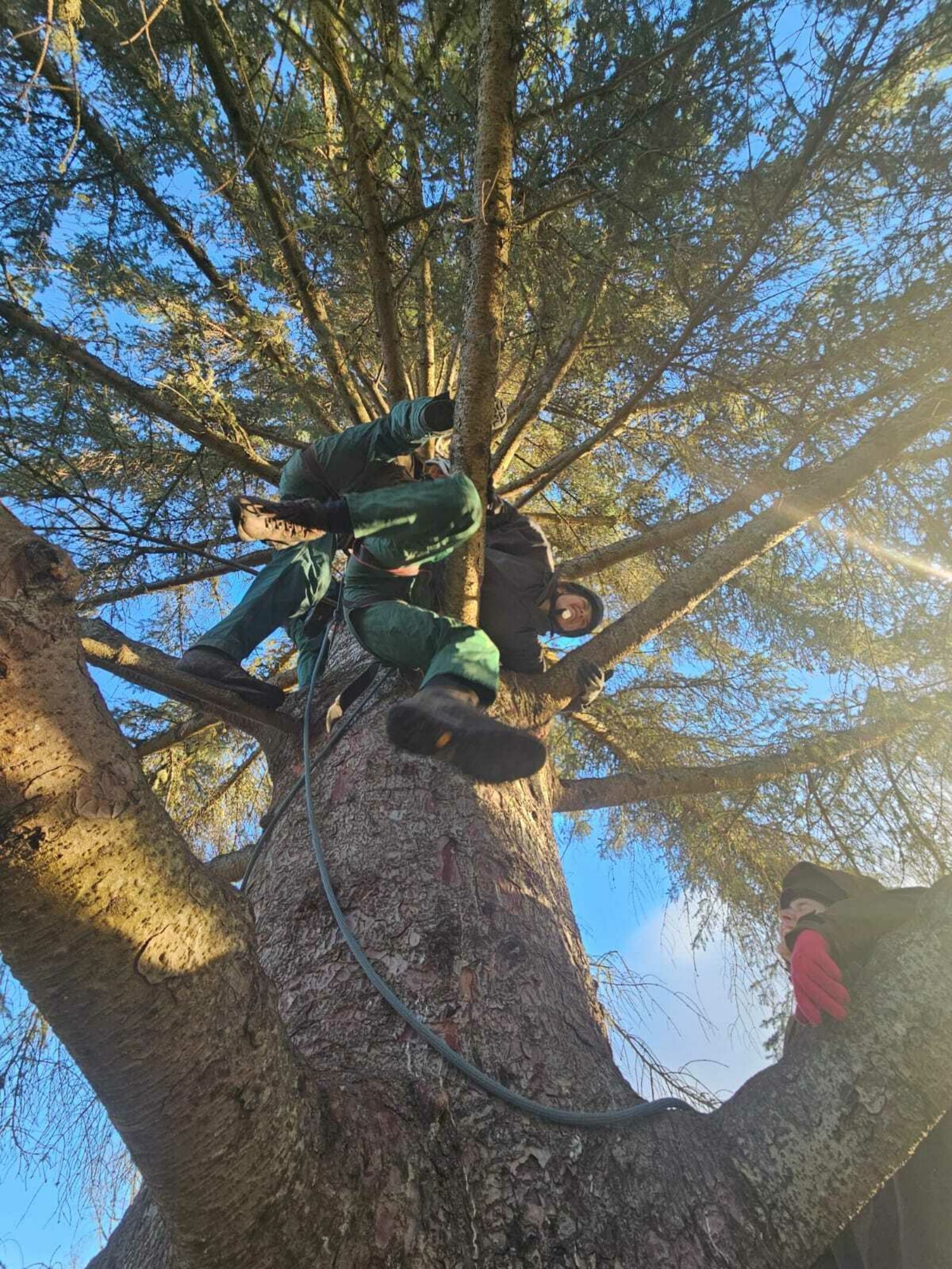Through directing the Women's Outdoor Leadership Course, Instructor Alice Varley discovered the transformative power of single-sex spaces. In this blog post, she shares the unexpected insights and transformative experiences that unfolded over the 10 weeks she spent with participants at Loch Eil.
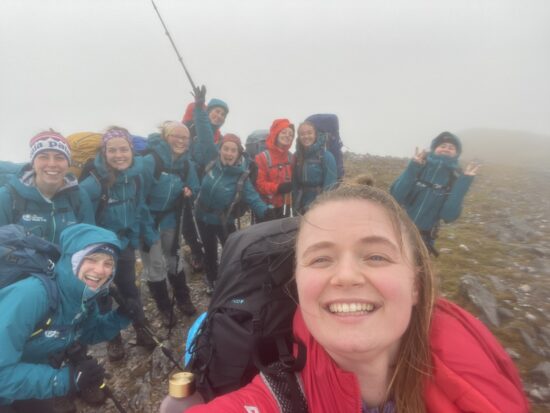
As course director of the women’s leadership course, I didn’t
really know what to expect going into it. Like a lot of the women on the
course, I too had never experienced an all-female space in the outdoor
industry. I was very used to being in a group of men, led by a man. I was
pleasantly surprised by the impact of the course - both on men and women.
A major success of the course was the experience that the male staff members had when greeted by our team, who were proudly referred to as ‘The Women’.
The first week of the course involved a centre tour, where myself and the eight women visited the different centre departments. Some of our most outgoing male staff members were unusually shy when meeting with The Women. Several men reported back to me that they had felt quite intimidated by such a large group of women, and for the first time in their outdoor career, they found themselves feeling socially insecure as they were the only man in the room. This created empathy for how women often feel in outdoor settings. I shared with them what it feels like for me when I am often the only woman on a technical outdoor course, and how I subconsciously battle through a bit of intimidation whilst engaging in the course content. Some of my male colleagues now fully appreciate what this feels like and how much extra social effort it can take to interact with a group where you are the anomaly.
During the first few weeks of technical coaching and group leadership experience, it became quite clear through our sessions together that the women knew exactly what constitutes good leadership. They understood and appreciated the balance of safety, judgement and compassion that good outdoor leaders display, and they were quick to identify styles of leadership they resonated with and others they did not. The more useful quality for us to spend time focusing on for The Women was their self-belief and confidence. It seemed much more comfortable for the women to ruminate on areas of their leadership that they felt needed improvement, and this perpetuated the limiting belief that they weren’t quite ready to lead.
We used peer-to-peer and self-reflective feedback to identify what our unique character strengths were, which felt more uncomfortable than constantly focusing on areas we feel we are lacking in. A workshop utilising the tool of Joharis window meant some women were able to see strengths in each other that they had not seen in themselves, such as relentless positivity or emotional awareness. Consciously celebrating these strengths allowed the women to embody them even more.
The culture of support and shared success enhanced and accelerated our development towards self-confident leadership. This atmosphere was extremely palpable during our Tree Climb activity, where all participants were tied at equal spacings to one long rope and challenged to climb up and around a 30-meter Scots Pine tree. This activity requires the whole group to climb at the same pace as they are all equally connected to one another.
The two hours up a tree were spent laughing and singing, chatting away, and directing each other to the best branches. The confidence to lead that we were able to create in the tightly bonded team of The Women was a great point of reference from which they could experience themselves as leaders, and then take this version of themselves back into mixed-gender environments.
The unity of the group was immensely strong towards the end of the course. They truly wanted to see each other succeed, and at times gave some really compassionate constructive feedback to help one another develop.
As more opportunities to lead arose towards the end of the course, we used the psychological model of Transactional Analysis to frame our self-awareness. With the aim of increasing the strength of each woman’s unique leadership style, the team were open to exploring why they may respond to the same situation in different ways. The strengthening of the Adult state was our aim, with the hope that increased self-understanding would solidify the confidence required to lead as our authentic selves, no matter the setting. The end-of-course feedback forms rated the level of psychological challenge experienced during the course as particularly high.
Supporting vulnerable moments in the team gave rise to the courage required to lead confidently. It seemed that genuine breakthroughs came for The Women when one person's courage to be themselves gave permission for the woman next to her to do the same.
What I now know after directing the women’s course which I didn’t know before is this - single-sex spaces are valuable for all genders. Creating an emotionally safe space for people to explore what authentic leadership feels like for them is a springboard into doing the same in the wider world. Leadership is individual, personal, and unique, so people need time and support to work out how to lead as themselves.
Apply to join the next Women's Outdoor Instructor Development Programme (previously known as WOLC) and help shape the future of female leadership at Outward Bound. Applications are now open!
Further Reading
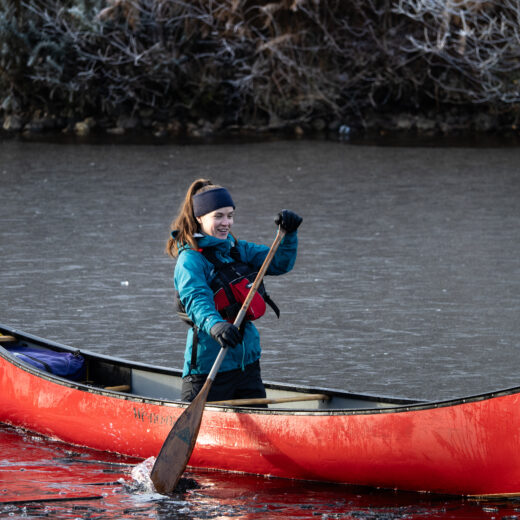
Camaraderie, Growth, and Empowerment
30 January 24
Sarah Hewitt shares her experiences from the Women's Outdoor Leadership Course

Rivalry and Role Models
26 February 24
Another guest blog from photographer and storyteller, Sarah Hewitt
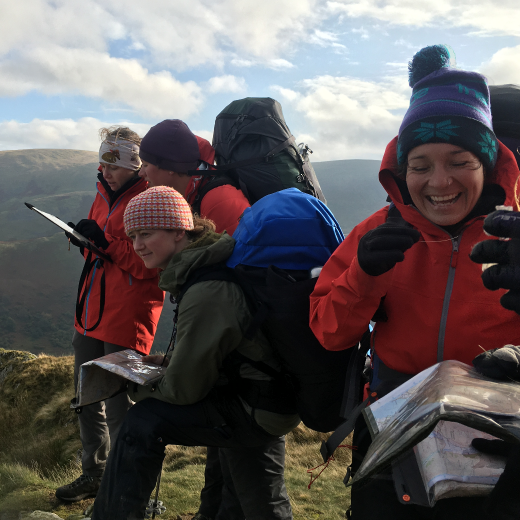
A Career in the Outdoors: Not for me?
11 December 19
Find out what it takes to become a great female leader at Outward Bound.
